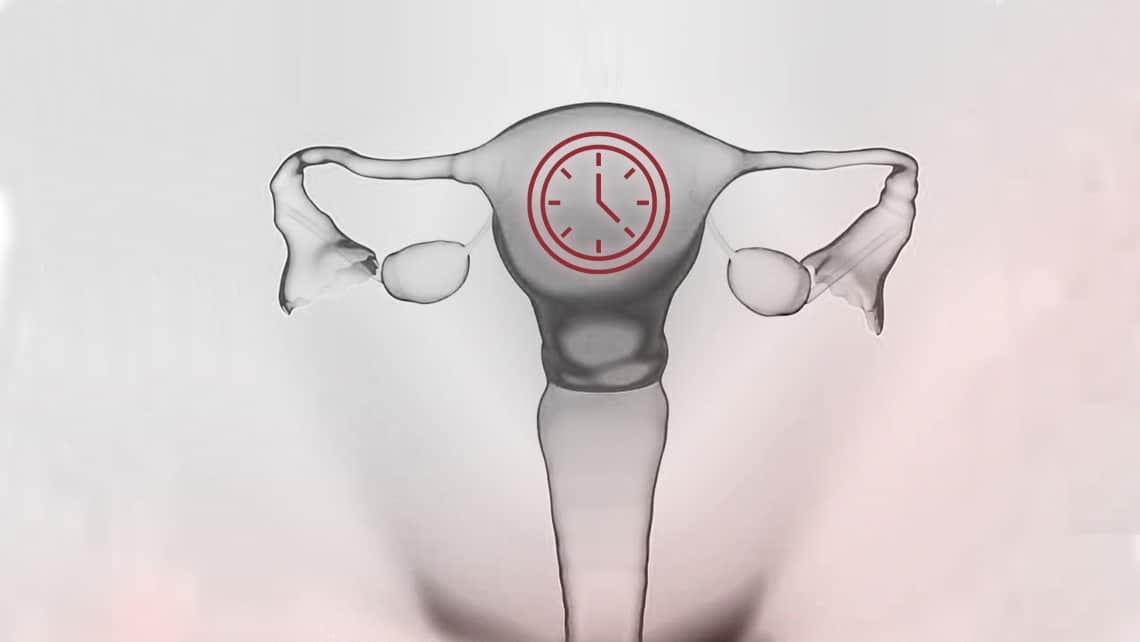
Getting pregnant with an irregular cycle
One of the main questions we see on a daily basis in gynaecological consultations is associated with irregular menstrual cycles.
We must bear in mind that regular cycles are those occuring every 28 days in most cases, although we also consider regular in those patients who have cycles between 21 and 35 days.
Índice
What causes or factors can influence the regularity of the menstrual cycle?
There’re various causes and/or factors that influence the menstrual cycle irregularity.
With regard to hormonal factors as such, we can mention the following:
- Polycystic Ovary Syndrome
- Hyperprolactinaemia (increased prolactin).
- Thyroid disorders
- Ovarian insufficiency
There are other factors that can affect menstrual regularity such as:
- Coagulation disorders
- Presence of polyps, fibroids, endometriosis, etc.
- Stress
- Eating disorders (anorexia)
- Obesity
- Intense physical exercise.
How can these causes be detected?
It is important to mention these alterations in routine gynaecological check-ups in order to carry out a thorough study of the origin of these irregularities, as well as to assess the need for joint management with other specialities (endocrinology, haematology, psychiatry, etc.).
Is it possible to get pregnant with irregular cycles?
Many of the patients who come to our clinic in search of pregnancy ask us for irregular cycles. These patients require a detailed assessment, not forgetting of course the assessment of the couple.
Most patients with irregular cycles do not ovulate, which means the egg is not released into the fallopian tube and fertilisation does not occur.
However, some patients with irregular cycles may have an occasional ovulatory cycle and achieve the desired pregnancy.
What assisted reproduction techniques could be indicated for patients with irregular cycles seeking pregnancy?
In the case of patients with irregular cycles who are seeking pregnancy and the couple has a normal previous study, we can offer treatment to help achieve ovulatory cycles.
Many of these couples can benefit from “Directed Coitus” using oral ovulation inducers, such as clomiphene citrate or the use of Gonadotrophins subcutaneously at low doses. This type of treatment requires monitoring from the beginning, to assess follicular development and hormone levels ultrasonographically. The aim of this treatment is to generate ovulatory cycles and schedule sexual relations at home when the ultrasound and hormonal criteria are met to trigger ovulation.
Artificial insemination (AI) is another technique that can be indicated in cases of patients with irregular cycles. In order to carry out this technique, a previous study of the couple is required. As with directed coitus, the aim of this technique is to achieve an ovulatory cycle and trigger ovulation when ultrasound and/or analytical criteria are met. We can schedule the insemination 36-38 hours later at our clinic, previously preparing the seminal sample (capacitation).
In vitro fertilisation (IVF) is one of the techniques that could be indicated in cases of irregular cycles, such as those associated with maternal age, alteration of the fallopian tubes (obstruction), alterations in the seminogram or failure of previous treatments (directed intercourse, artificial insemination).
Dr Herly Alcázar, a gynaecologist at Instituto Bernabeu.
